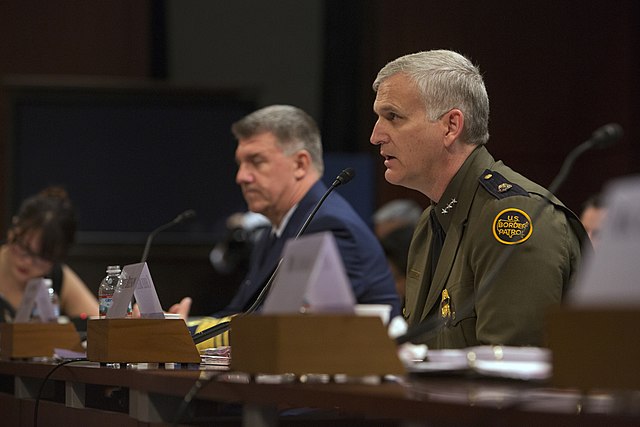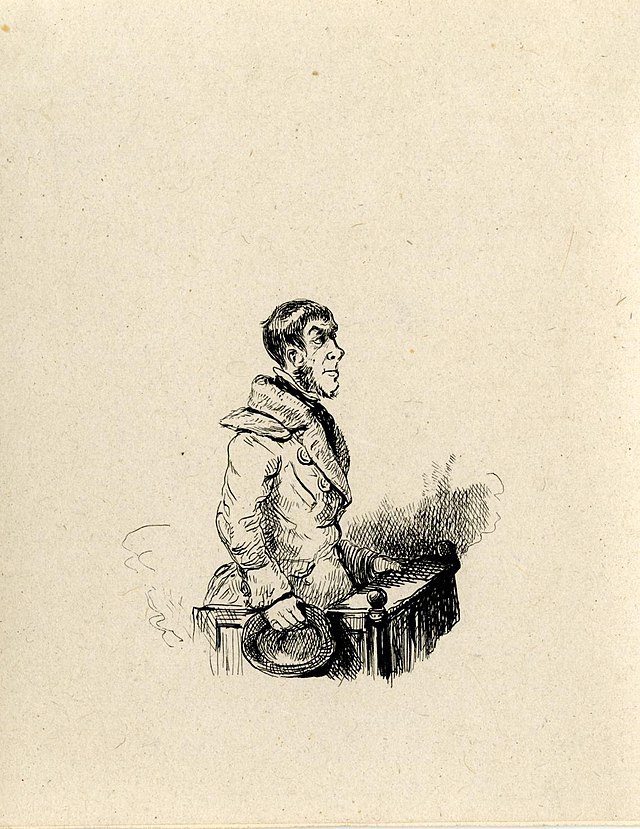“The sad truth is that societies that demand whistleblowers be martyrs often find themselves without either, and always when it matters the most” -Edward Somes.
By Himanshi Kapoor, a first-year law student at Fairfield Institute Of Management and Technology.
Edited by: Ms Ragini Sehgal

Whistleblowing is when a person reports something illegal or wrong in a public or private organisation, like discrimination, financial misconduct, corruption, etc. Usually, whistleblowers are the people connected with the organisation itself, i.e., customer or employee, though it can be somebody outside the organisation in some instances. Those who become whistleblowers choose to report the wrongdoings internally or externally. Whenever there is a report, the is retaliation is terminated abruptly. Still, for certain activities considered retaliatory, like sudden extreme increase in workloads, having hours cut drastically, making task completion impossible, or otherwise bullying measures, there are laws made to protect whistleblowers. In India also there are many laws made for their protection, the most recent being Whistleblower Protection Act,2014, but the question arises do they protect them?
Whistleblower protection act,2014
This act has been adopted from some sections of the Companies Act,2013 and some norms from India’s security and Exchange Board. This act was done to protect those who report wrongdoings like corruption, wilful misuse of power or discretion or criminal offences in different organisations. More than seven years since the act passed, it is still enacted without any amendment. Though it protects the whistleblowers somehow, there are many shortcomings also.
In this act, a complainant complains about disclosure, i.e., a complaint related to any offence or wilful misuse. This complaint may be made in writing or electronic mail against any public or private servant under Section 4 of the act. These complaints are recognised only when they disclose their identity, not anonymously. The protection to their identity is provided in section 11 of the show. After the objections are reported, they are checked by the concerned authority and all the facts. Further actions are taken when the allegations are proven right by the rules.
This act was introduced after many instances where the whistleblowers were threatened, harassed and even murdered after submitting their complaints. Satyendra Dubey was murdered after complaining about corruption in the National Highways Authority of India’s Quadrilateral project. Not only citizens but also many public officers had suffered invariably before the act was introduced in India. Though the Whistleblower Protection Act has protected individuals, many don’t reveal their identity as the show lacks in any way.
Infosys Episode
In this case, a group of workers filed a complaint against the company’s operating officers, which stated that the company is using illegal means to increase profit and short-term gains. The complaint also assured that they’ve substantiation similar as call recording and a dupe of the dispatch that will prove the below allegations. In the complaint, he alleges the CEO, Mr Salil Parikh, directed them to manipulate the documents and make wrong hypotheticals. The finances used in the CEO’s visits to Bangalore belong to the company; if he wants to work from Mumbai, all the travelling charges to Bangalore are covered only by his payment, not from the company’s finances. There was a discourse for the same, but the CEO was given a pure virgin both by the authorities and the SEC as no substantiation was planted. There have been many more incidents of whistleblowing in Infosys that were left uncleared or without any outcome.
The Satyam Scandal
In this case, the company misrepresented the company’s accounts to the board, investors, and shareholders. In this fiddle, the company has contended in fraudulent auditing practises performed by chartered accountants and the company’s adjudicator. This company has been following whistleblowing programmes since its inception, but it isn’t being followed correctly, and as a result, only it leads to such a big fiddle. In this fiddle, the Delhi metro rail pot president suspected significant mischief in the company and raised a red flag about it in front of the head of India’s Planning Commission. After all of these allegations, the company’s owner, Ramalinga Raju, surrendered to the police for the fraud. The original whistleblower, the president of DMRC, was charged with libel by the Andhra Pradesh government due to his letter.
The Ranbaxy COMPANY Fraud
In this case, the whistleblower, Dinesh Thakur, was an employee of the company, and he suspected that some malpractices were taking place there. As a result, he expressed his concerns to the appropriate authority. However, he was forced to resign from the company due to the issues he raised, which included severe allegations about drug development, manufacturing, and testing data. As a result, the company’s management forced him to resign. After resigning, he began working for the US Food and Drug Administration, exposing the Ranbaxy Corporation’s malpractices. Only because he sought the protection of the United States’ whistleblower protection programme
The main benefit that people think of this option is the anonymity of their identity. Many people want to expose the wrongdoing in the system, but they do not do it because they have to give their identity and, therefore, theirs and their family. Lives are in danger. These people want to expose wrongdoing, so the only option left for them is to take the help of these online sites to make all of this data public. It is a much easier option to exhibit anything via the internet because we don’t need to print all the documents here. We can share them as they were available in an electronic version. Personal data to expose any wrongdoing present. Many sites like Wiki Leaks gave whistleblowers a sophisticated platform to provide such information without giving any of their data. They claim they don’t even keep a log of where you uploaded this thing, your time zone, or even your browser. Because of all these advantages, people tend to use these platforms more than the procedures established by the government because we have to reveal our identity. Along with all the benefits that we derive from online platforms, there were also risks, such as a threat to national security. Our government agencies can protect national interests and have such secret information. These documents are essential for the country’s development, and if anyone on the internet discloses such records, the country’s image is degraded worldwide.
Are they protected in India?
The Whistleblower Protection Act in India is not as effective as in the United States of America, as they have a separate system for the same. Still, in India, the laws made provides safeguards against their victimisation, but it does not provide a mechanism to protect them. The Whistleblower Protection Act,2014, notified on May 12 2014, is not implemented correctly. The Infosys whistleblower group saw fit to send its document and voice recordings to the US Department of Labour’s Whistleblower Protection Programme, rather than the company itself, claiming his identity would be revealed if he did “We have not sent any mailing to the company because our identity will be revealed “, the email told officials in the labour department. When a person reports the wrongdoings, they generally prefer to be anonymous. Still, according to the Whistleblower Protection Act in India, the person must tell his identity to get protection which, in my opinion, needs some amendments. This is not only the shortcoming, but in India, the protection through whistleblowing is mainly provided to the public officers and not the cooperate ones like in the Infosys case mentioned above.
Measures to PROTECT them
PUBLIC INTEREST: As discussed in Common Cause and Ors. Vs. Union of India and Ors. The Supreme Court has said that whistleblowers cannot be punished if they disclose confidential information in the public interest. According to the act, any disclosure is a public interest disclosure; our statutes have no specific definition of public interest. As a result, there has been confusion regarding what information may or may not be of general interest on several occasions. There are differences of opinion among many agencies on this issue. In our country, therefore, we need a test that can determine whether the disclosure of particular information is of public interest or not. We can decide this by examining whether the information disclosure informs the public about the organisation’s working system, whether the exposure helps the government’s decision-making system, whether the information disclosure discloses the people of the danger that there is for their life due to the negligent conduct of an organisation if this type of disclosure happens to someone. Agencies may choose not to disclose by saying that it is not in the public interest but seeing the big picture back to where we can see that the agencies were trying to save themselves from the embarrassment caused by their actions. So there should be a test to determine it in our country.
• ANONYMOUS COMPLAINTS: The law of our country does not allow the compilation of anonymous complaints; I such a complaint is compiled, it is immediately dismissed, and the complainant has no choice but to use the online tools to disclosure of information. The government did not accept anonymous complaints as there are several complaints without evidence; they are only compiled to defame that person. It would take a lot of work and time to verify each complaint’s validity and guard against it; the government did not allow anonymous complaints. A solution to this problem must be found because, on several occasions, the complainant has refused to disclose the name and may have information about national security. Because he cannot disclose this information to the government, he reveals it in line, and news endangers national security. In this case, we cannot entirely blame the complainant as we also did not allow them to disclose this information to us. Some countries are developing a solution to this problem, for example, by setting up a hotline in Germany that allows the whistleblower to share their information without providing their credentials. In Indonesia, they are developing a website where the whistleblower can share this information, and in South Korea, they have even set up an anonymous hotline for it.
· VICTIMISATION: The law in our country has a very general idea of protecting the victimised whistleblower. It only orders the relevant authority to protect the whistleblower. Still, the administration has the final say. In almost all cases, the local management has not provided them with guarantees due to the local pressure from those against whom the informant complained. Some things might empower the whistleblower if added to the law. If the whistleblower has the right to transfer from a place or revoke their transfer, it will give them a sense of security in the workplace. In many cases, the whistleblower is falsely arrested in a few different points to cause them to resume their complaint, so there should be a rule of immunity from prosecution granted to the complainant. He should have provided government legal assistance to fight any further false accusations against him. People try to harass the whistleblower in any way they can, so if he has legal aid with him, he can quickly get into a fight with it all. If the informant thinks he has some threat to his life and his family, everyone should have protected themselves from the police. The competent authority can analyse the threat level and then decide on the level of protection it enjoys.
• INCENTIVES: There is no concept of inducements in the law, but if a person makes a false complaint against someone solely for their grudge, the person will be punished by article 17 of the law. So if a person is punished for providing incorrect information, then why not reward the person who reveals essential information? The government benefits from this information, and people’s lives are saved. So, in my opinion, the government can give these people incentives. The only problem with this rule is that many people will only complain about the reward.
In our country, the protection of whistleblowers is not very encouraging; even after putting in place many laws and making changes to them, the system’s needs are not suitable. One of the biggest problems is that corruption is present in all departments and offices, private or government. Companies don’t let their employees speak out against them, and if anyone dares to speak out against malpractice, the company is using their enormous wealth and power to win this case and after the employee who raised it. The voice or he is fired from the company, or his life becomes miserable, so he had to leave this company. It takes enormous strength to be an informant; not everyone can bear such pressure that an informant receives.


Very well written!
Wonderful article